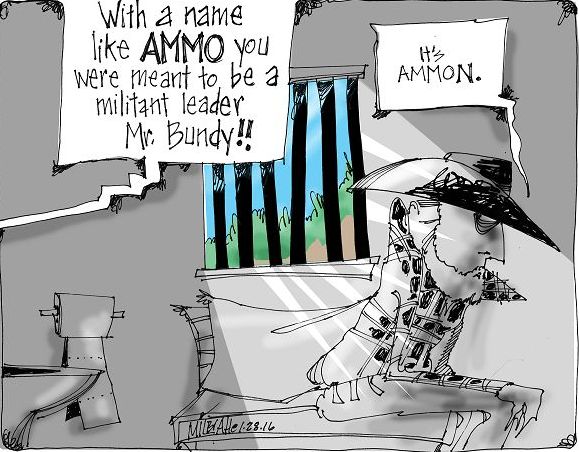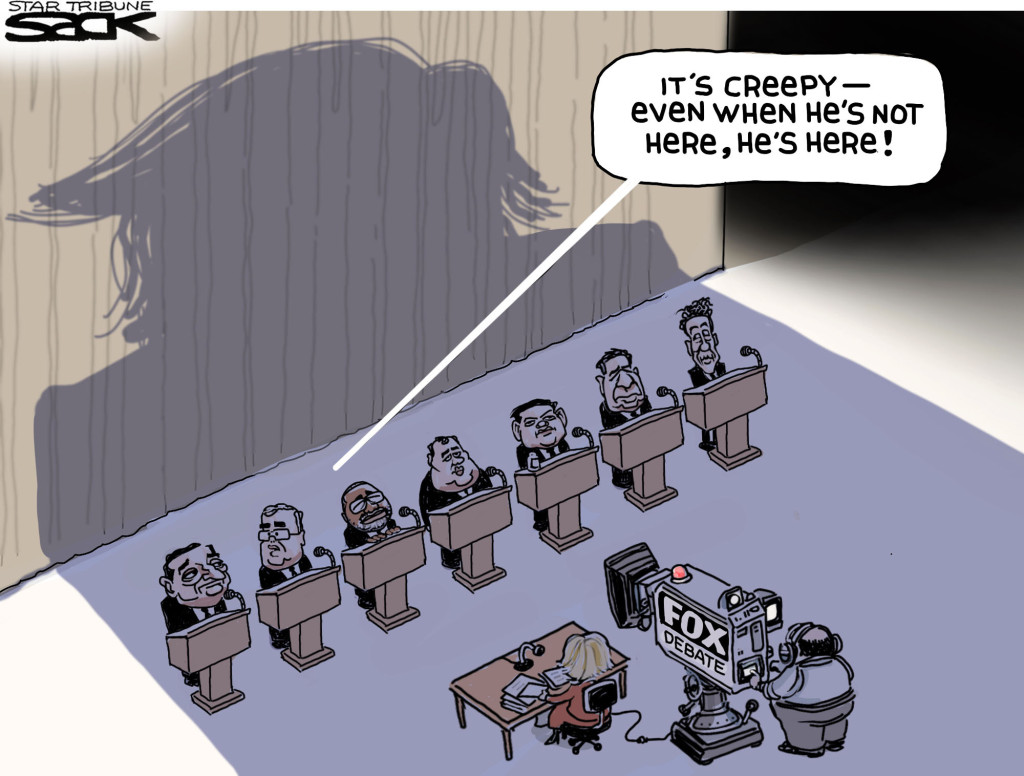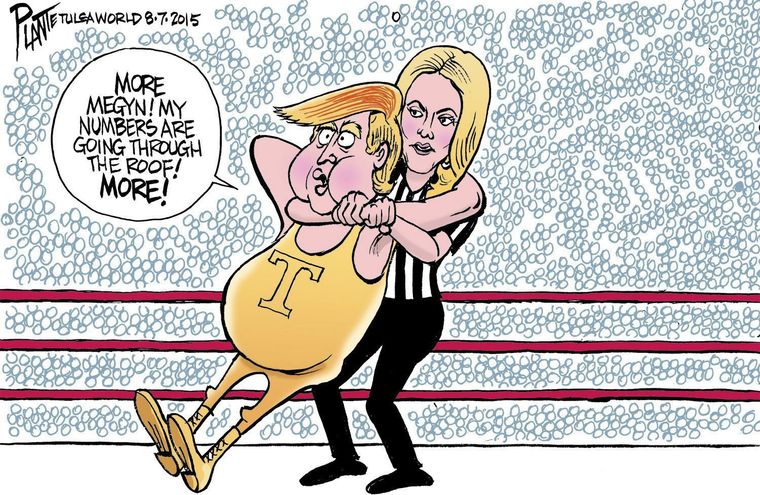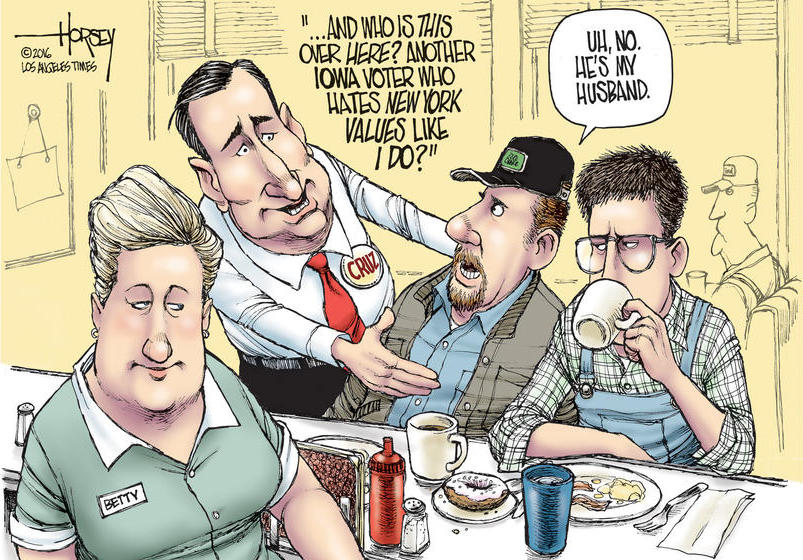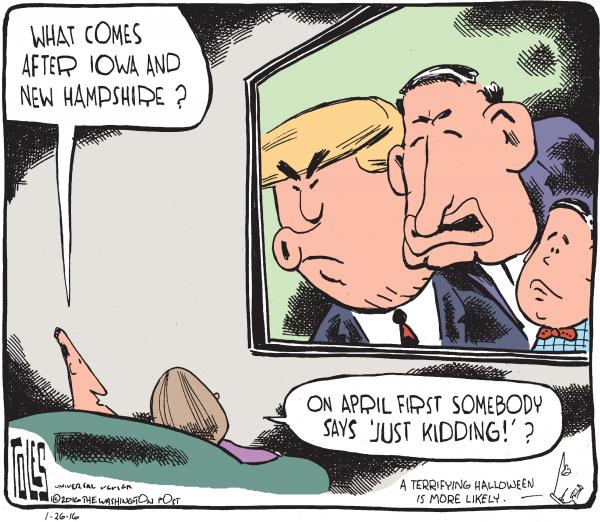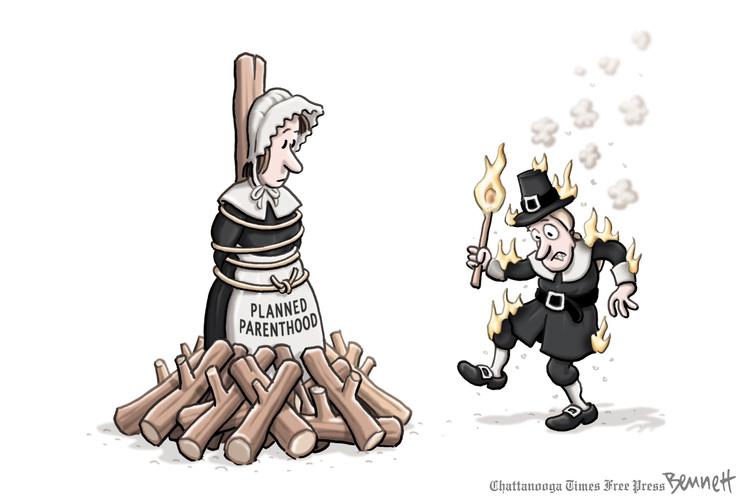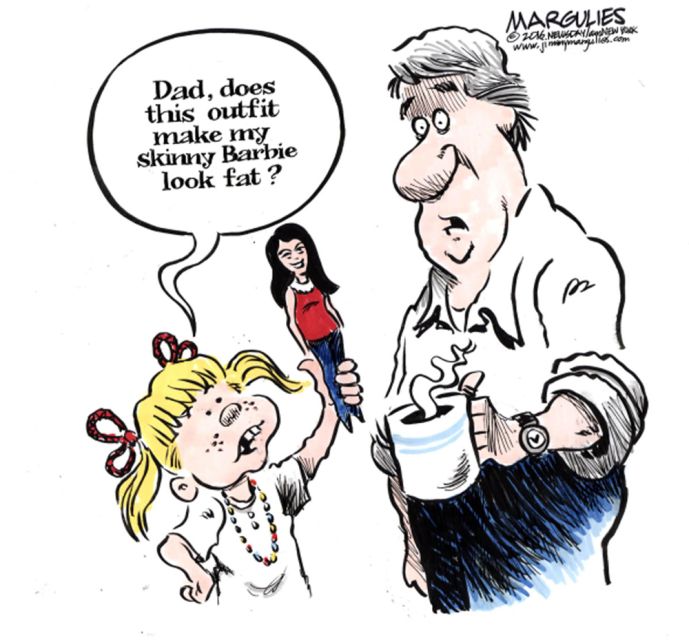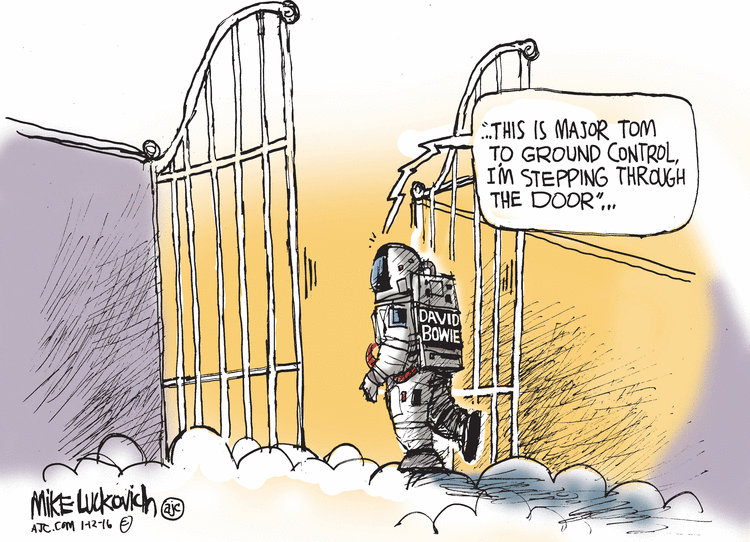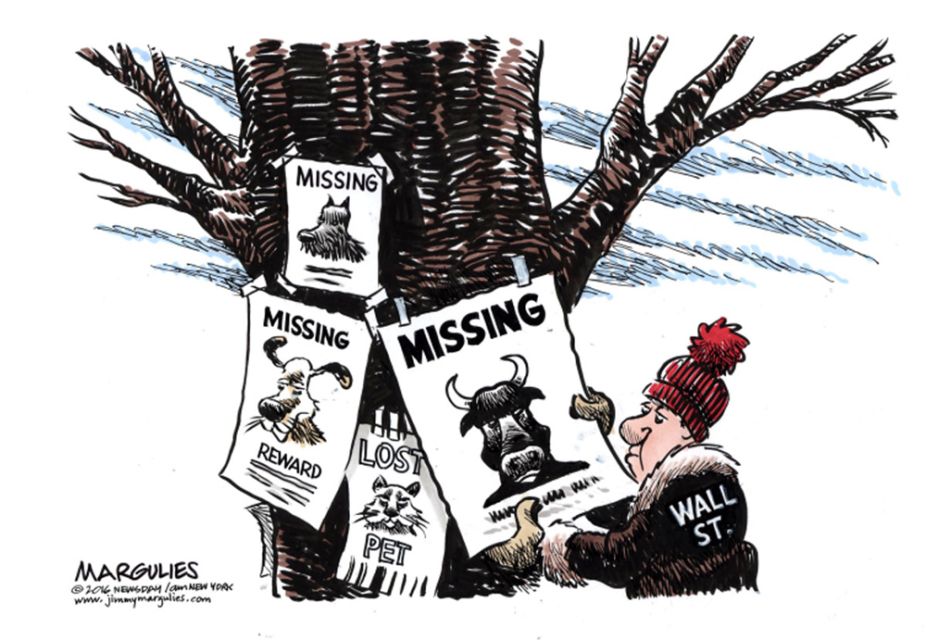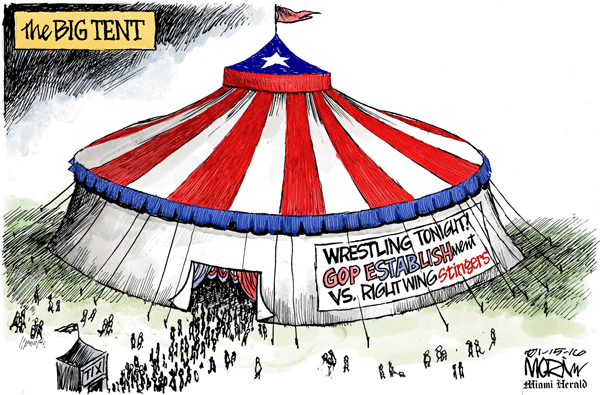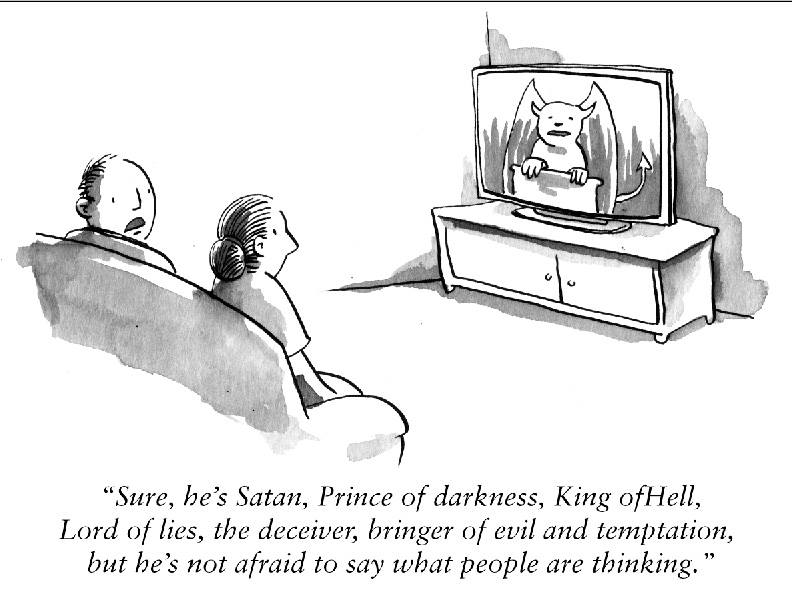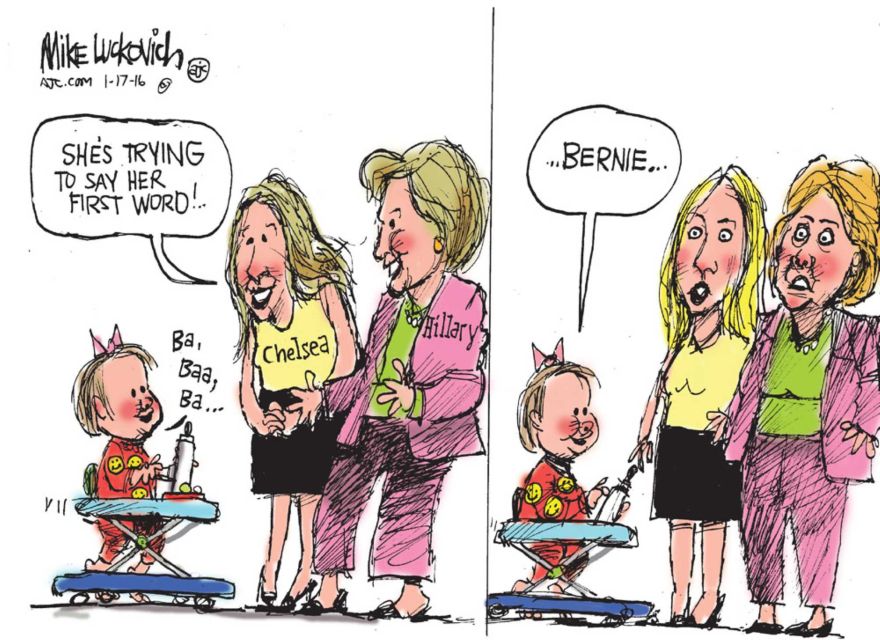From Stu Rothenberg at Roll Call:
While the decision makers at news organizations…scramble to appeal to younger viewers, [the] Republican and Democratic voters in Iowa and nationally have embraced a remarkably “mature” handful of top tier candidates.
How mature?
• Donald Trump will turn 70 next year
• Vermont Sen. Bernie Sanders will be 75
• Hillary Clinton will turn 69 a couple of weeks before the 2016 elections
There are younger Republican candidates: Ted Cruz is 45, and Marco Rubio is 44. The Democrat former Maryland Gov. Martin O’Malley is 53.
According to a January 18-24 Quinnipiac University poll of likely Democratic voters, Sanders held a 78% to 21% lead among voters age 18 to 44 over Clinton. The younger O’Malley polls at just 2%.
On the GOP side, Trump and Cruz tied with voters age 18 to 44, each drawing 29%.
So, the networks are trying to attract the young voter demographic, while young voters overwhelmingly like a few of the older candidates. But, will younger voters actually vote? Their recent record isn’t reliable: Young voters turned out in big numbers in 2008 and then stayed home in record numbers in 2014. Did young Dems take a short nap in 2014 or have they turned their backs on democracy?
We don’t know for sure, but there is some bad news: Research by Roberto Foa and Yascha Mounk shows growing disillusionment with democracy – not just with politics or campaigns, but with democracy itself: (emphasis by the Wrongologist)
This growth is worldwide, but it is especially strong among young Americans. Fewer than 30% of Americans born since 1980 say that living in a democracy is essential. For those born since 1970, more than one in five describe our democratic system as “bad or very bad.” That’s almost twice the rate for people born between 1950 and 1970.
Foa and Mounk wrote in the NYT that political scientists are well aware that poll after poll shows citizens to be more dissatisfied than in the past. Yet they resist the most straightforward conclusion: that people may be less supportive of democracy than they once were. This raises a strange question: Could the political system in our seemingly stable democracy be heading for a fall?
Think about it. People say they like democracy less than they used to. While most Americans still have a deep emotional attachment to the Constitution, respect for the rules of our democracy are also eroding. The rise of politicians who are critical of key aspects of liberal democracy, like freedom of the press, or universal voting, or the rights of minorities, is even more disconcerting.
Citizens are aware of this disconnect. When asked by the World Values Survey to rate how democratically their country is being governed on a 10-point scale, a third of Americans now say: “not at all democratic.”
Let’s hope that this is a transient phenomenon. What explains the down-tick? It’s probably related to:
• Lack of optimism caused by stagnating incomes. This disproportionately effects the young.
• Rising income inequality, which effects all citizens.
• Attempts by the rich to game the political system, often through Super PAC donations.
In fact, the rich are now more likely to be critical of democracy than the poor. According to the World Values Survey, in 1995, less than 20% of wealthy Americans (those in the top income quintile) approved of having a “strong leader who doesn’t have to bother with Congress or elections”. Today, more than 40% support that view.
It’s not clear what young voters think is a better alternative to representative government, but who can blame them for not being enamored with their current political representation?
According to the US Census Bureau analysis of the voting population from 1964-2012 indicates a decrease in voting in all age groups, except for the 65 years and over group, who voted at nearly a 70% rate, while the 18-24 voted at 36% . But in 2008, 18-24 year olds did increase their numbers–the Obama factor.
Bottom line: If you want to make democracy work, you must get not only young people, but all the people who have given up on democracy involved again. But we cannot simply rely on charismatic individuals to help young voters awaken their political selves. We must restore their faith in democratic politics.
This is the very best argument for a Bernie-style political revolution.

